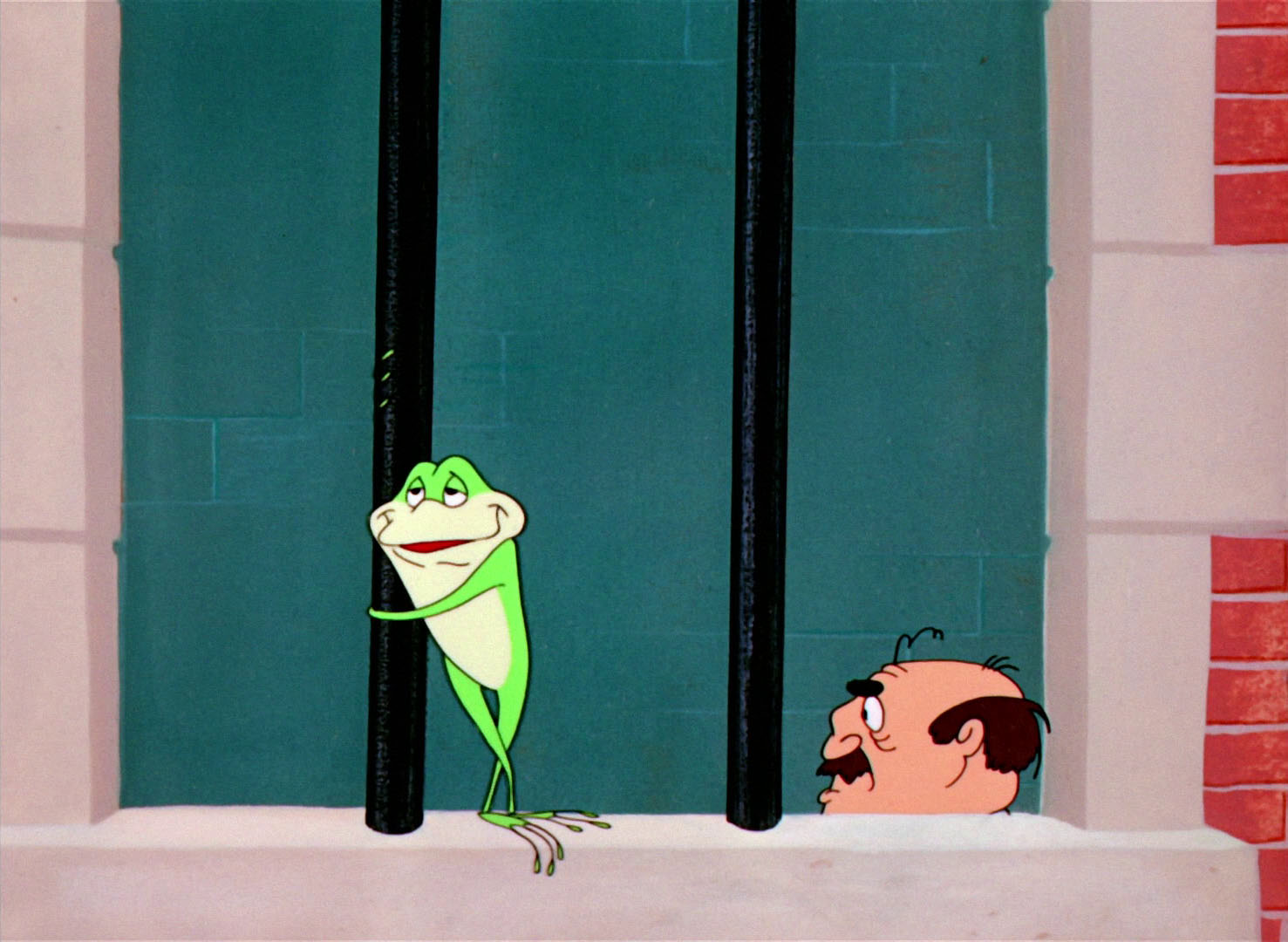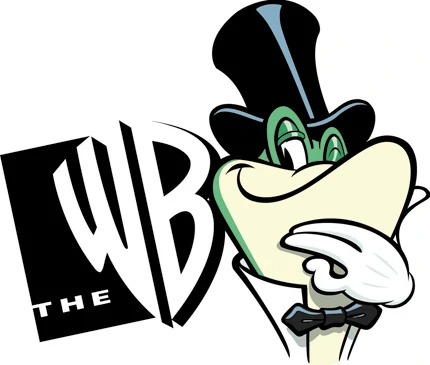Michigan J. Frog

"One Froggy Evening"
One in a series of posts dedicated to pop-culture depictions of frogs — as symbolic representations of “too-muchness” — from 1904–2003.
In the 1955 Chuck Jones Merrie Melodies one-off short One Froggy Evening, we meet a vaudevillian frog who sports a top hat, dances, walks a tightrope, and belts out “Hello! Ma Baby” and “I’m Just Wild About Harry” (two Tin Pan Alley classics) and Figaro’s aria from Il Barbiere di Siviglia. There’s a nightmare logic to this film, as the frog’s erstwhile manager encounters one mishap after another in actually presenting his incredible discovery to the public… one begins to wonder if Michigan J. Frog (who won’t stop performing off-stage, but onstage merely squats and croaks) is just a figment of the hapless manager’s imagination. There’s a science-fictional ending…

This frog is a trickster — almost a mythical figure whose appearance in one’s life leads to visions of fame and fortune but a reality of failure, squalor, and even imprisonment. A rapscallion, for sure.
The cartoon pays homage to Once Upon a Time, a 1944 Cary Grant movie in which Grant is a showman who desperately needs money to save his theater… and bets everything on a dancing caterpillar. It also references Ol’ Rip the Horned Toad (actually a lizard), who became famous in 1928 after supposedly being exhumed alive after spending 31 years inside the cornerstone of a building.

Steven Spielberg would call One Froggy Evening “the Citizen Kane of animated shorts”; and in 1994 it was voted No. 5 of The 50 Greatest Cartoons of all time by members of the animation field. From 1995 until 2006, Michigan J. Frog would be the mascot of The WB Television Network.
Fun fact: Michigan J. Frog isn’t actually named in this short, though he does sing “The Michigan Rag” (an original song written by Jones, Michael Maltese, and musical director Milt Franklyn). He would receive his enduring moniker in the 1970s.
PS: It’s worth noting, regarding “Hello Ma Baby” — as one reads here — that “the lyrics of this [1899] song are in African American dialect, seen in the use of ‘ma’ for ‘my’ and ‘gal’ for ‘girl.’ The dialect connects this song to blackface minstrelsy, which was still popular in these years.”

